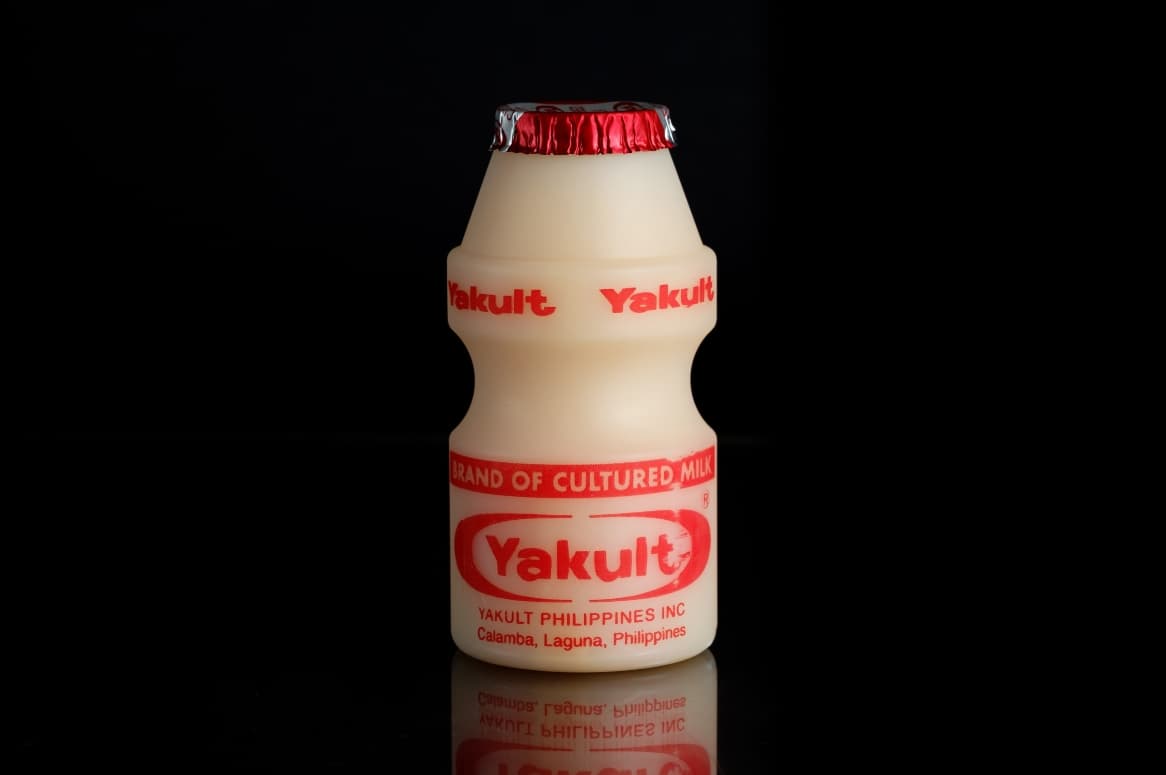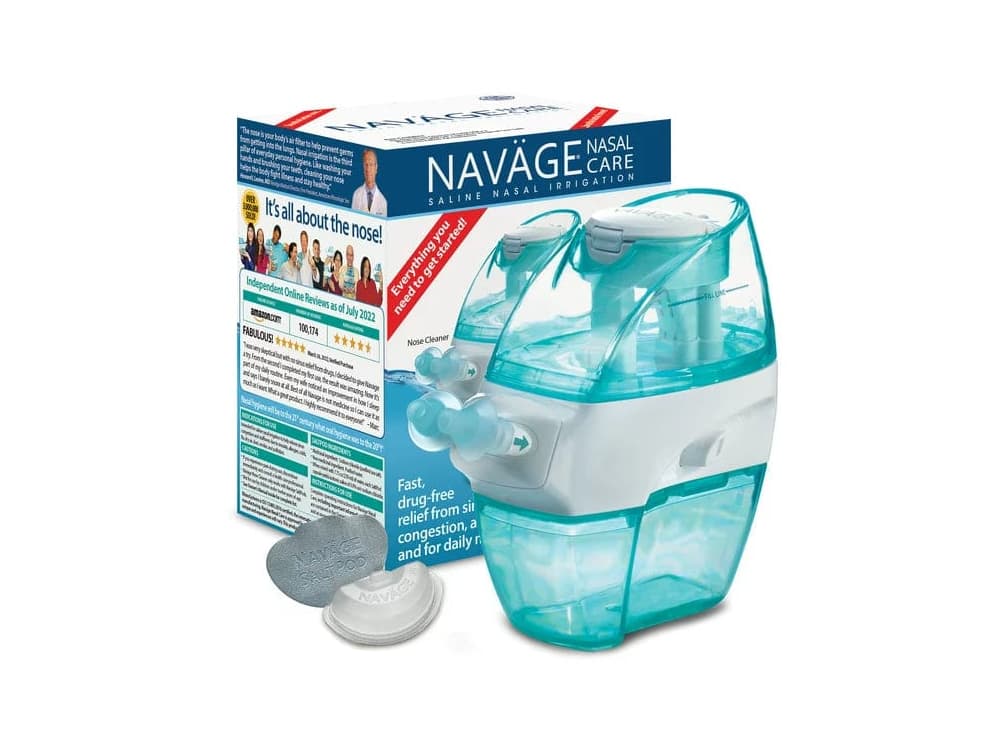Have you heard of Yakult? It’s a probiotic drink that claims to improve gut health and immunity. But is it really good for you?
In this article, we’ll take a deep dive into Yakult to understand if it truly boosts immunity and overall health.
We’ll examine its ingredients, nutritional value, and potential benefits and downsides.
Is Yakult Healthy & Does It Boost Your Immunity?

So let’s get started and find out if Yakult deserves a spot in your daily routine!
What is Yakult?
Yakult is a Japanese probiotic milk drink. It contains a special strain of bacteria called Lactobacillus casei Shirota.
Yakult is one of the world’s top probiotic drinks. The company claims that over 40 million bottles are consumed globally every day!
But what exactly are probiotics, and why are they important?
Probiotics 101
Our gut is home to trillions of bacteria, both good and bad. These bacteria play a crucial role in digestion, nutrient absorption, and immune function.
Probiotics are live beneficial bacteria. They help maintain the balance of gut bacteria, preventing the bad ones from taking over.
When this balance is disrupted, it can lead to digestive issues, weakened immunity, and other health problems.
That’s where probiotic foods and drinks like Yakult come in. They help replenish the good bacteria in your gut.
Key Ingredients in Yakult:
Now that we know the basics, let’s look at what Yakult contains:
- Water
- Sugar
- Skimmed milk powder
- Glucose
- Lactobacillus casei Shirota (the probiotic strain)
- Flavors
While the ingredients seem simple, some components like sugar have raised concerns. We’ll address those later.
Nutritional Information per 65ml Bottle
Here’s a quick breakdown of Yakult’s nutritional value per 65ml bottle:
| Nutrient | Amount |
|---|---|
| Energy | 50 calories |
| Protein | 0.8g |
| Total Fat | <0.1g |
| Saturated Fat | <0.1g |
| Carbohydrates | 11.5g |
| Sodium | 10.1mg |
As you can see, Yakult is relatively low in calories, fat, and protein. However, it does contain a significant amount of carbohydrates, mostly from sugar.
The Yakult Review 2024 with Pros and Cons:
Now, let’s dive deeper into the potential benefits and drawbacks of consuming Yakult.
1. Amount of Sugar
One major concern with Yakult is its high sugar content. Each 65ml bottle contains around 10 grams of sugar.
The recommended daily sugar intake is 20-25 grams. If you consume the suggested 1-2 bottles of Yakult per day, you’re already getting 10-20 grams of sugar from this drink alone.
Add to that the sugar from other foods and drinks, and you could easily exceed the recommended limit.
Excessive sugar consumption is linked to various health issues, including:
- Obesity
- Diabetes
- Cardiovascular diseases
To address this concern, Yakult also offers a “Light” version with lower sugar content. We’ll compare the two versions later.
2. Type of Bacteria (Lactobacillus casei Shirota)
The star ingredient in Yakult is the probiotic strain Lactobacillus casei Shirota (LcS).
This strain is unique because it can survive the harsh acidic environment of the stomach and reach the intestines alive.
Once in the gut, LcS can:
- Inhibit the growth of harmful bacteria
- Promote a healthy gut flora balance
Each bottle of Yakult claims to contain 6.5 billion LcS bacteria. In comparison, a cup of yogurt typically has around 240 million probiotic bacteria.
So, in terms of probiotic potency, Yakult seems to pack a punch.
3. Skimmed Milk Powder and Glucose
Yakult contains skimmed milk powder, which serves as a growth medium for the LcS bacteria.
Since it’s skimmed, the fat content is relatively low. However, the milk powder itself doesn’t offer any significant additional benefits.
Glucose is added to Yakult to feed the probiotic bacteria and extend the product’s shelf life.
4. No Added Preservatives
One advantage of Yakult is that it doesn’t contain any artificial preservatives.
The probiotic bacteria in Yakult create an acidic environment that prevents the growth of other harmful bacteria, eliminating the need for preservatives.
5. Empty Calories
While Yakult contains 50 calories per bottle, around 40 of those calories come from sugar.
This means that Yakult primarily provides “empty calories” with little nutritional value beyond the probiotic bacteria.
How Many Bottles of Yakult Can You Consume Daily?
Yakult recommends consuming 1-2 bottles per day. However, due to the high sugar content, 1 bottle may be a safer daily limit for most people.
It’s essential to be mindful of portion sizes, especially if you have a sweet tooth. Children, in particular, may be tempted to consume more than the recommended amount due to Yakult’s pleasant taste.
Potential Side Effects of Yakult
While Yakult is generally considered safe, consuming too much can lead to some side effects:
- Low immunity: Contrary to its claims, excessive Yakult consumption may weaken your immune system due to the high sugar intake.
- Nausea and vomiting: Some people may experience digestive discomfort when introducing a new probiotic strain to their gut.
- Stomach and digestive issues: Large amounts of Yakult may cause bloating, gas, or diarrhea, especially in those with sensitive stomachs.
- Bloating: The introduction of new bacteria can temporarily cause bloating until your gut adjusts.
Who Should Avoid or Limit Yakult?
While Yakult is generally considered safe for most people, there are a few groups who should avoid or limit their consumption:
- Diabetics: Due to the high sugar content, diabetics should avoid Yakult or opt for the “Light” version.
- Children under 2 years old: Always consult a pediatrician before giving Yakult to young children. Yogurt may be a safer probiotic option for this age group.
- People with lactose intolerance: Yakult contains milk-derived ingredients, so those with lactose intolerance should avoid it.
Pricing and Shelf Life
Yakult is a relatively budget-friendly option for introducing probiotics into your diet.
- A pack of 5 bottles typically costs around Rs 70 (approximately $0.85 USD).
However, it’s essential to note that Yakult has a short shelf life of 10 days.
While you can still consume Yakult after 10 days, the probiotic bacteria may have died off, rendering it less effective.
Yakult vs. Yakult Light: Which One Should You Choose?
As mentioned earlier, Yakult also offers a “Light” version with reduced sugar content.
Here’s a quick comparison:
| Nutrient | Yakult Regular (per 65ml) | Yakult Light (per 65ml) |
|---|---|---|
| Energy | 50 calories | 35 calories |
| Sugar | 10g | 3.5g |
As you can see, Yakult Light contains significantly less sugar (3.5g compared to 10g in the regular version).
For those looking to limit their sugar intake, Yakult Light may be a better option. However, it’s worth noting that it still contains some added sugars.
The Importance of a Balanced Diet and Lifestyle
While probiotic drinks like Yakult can be beneficial, it’s crucial to remember that they are not a magic solution for gut health. A balanced diet and healthy lifestyle are equally important.
Here are some tips for improving your overall gut health:
- Eat a fiber-rich diet: Fiber acts as fuel for the beneficial gut bacteria. Good sources include fruits, vegetables, whole grains, and legumes.
- Stay hydrated: Adequate water intake supports healthy digestion and prevents constipation.
- Exercise regularly: Physical activity improves blood flow and promotes healthy gut motility.
- Manage stress: High stress levels can disrupt the gut-brain connection and contribute to digestive issues.
- Get enough sleep: Sleep deprivation can negatively impact gut health and disrupt the balance of gut bacteria.
By combining probiotic foods like Yakult with a well-rounded diet and lifestyle, you can support your gut health and overall well-being.
Top 10 Natural Yakult Alternatives for Humans to Improve Immunity
Here are the top 10 natural Yakult alternatives that can help improve immunity:
- Yogurt: Yogurt is an excellent source of probiotics, containing various strains of live and active cultures such as Lactobacillus and Bifidobacterium. These beneficial bacteria support gut health and boost immunity.
- Kefir: This fermented milk drink is packed with a diverse array of probiotic strains, including Lactobacillus, Lactococcus, and Leuconostoc. Kefir is rich in nutrients and has been linked to improved digestion and immune function.
- Sauerkraut: Fermented cabbage, or sauerkraut, is a probiotic-rich food that contains lactic acid bacteria like Lactobacillus plantarum. These probiotics can enhance the immune system and promote a healthy gut.
- Kimchi: This traditional Korean dish made from fermented vegetables, such as cabbage and radish, is an excellent source of probiotics like Lactobacillus and Leuconostoc. Kimchi also contains immune-boosting compounds like vitamin C and antioxidants.
- Miso: Fermented soybean paste, miso is a Japanese staple that contains beneficial bacteria like Lactobacillus, Pediococcus, and Bacillus. These probiotics can support digestive health and immune function.
- Kombucha: This fermented tea beverage is rich in probiotic bacteria and yeast strains, including Gluconacetobacter and Lactobacillus. Kombucha is also a source of antioxidants that can contribute to a stronger immune system.
- Tempeh: A traditional Indonesian food made from fermented soybeans, tempeh contains a variety of probiotic bacteria, including Lactobacillus and Rhizopus. These probiotics can promote gut health and immune function.
- Pickles: Fermented pickles, especially those made with lacto-fermentation, are a good source of probiotic bacteria like Lactobacillus plantarum. These pickles can support a healthy gut and immune system.
- Sourdough Bread: Sourdough bread is made through a fermentation process that involves probiotic lactic acid bacteria, such as Lactobacillus. These probiotics can contribute to a balanced gut microbiome and improved immunity.
- Kvass: This traditional Russian beverage is made by fermenting rye bread or beets, resulting in a probiotic-rich drink that contains beneficial bacteria like Lactobacillus and Leuconostoc. Kvass can support digestive health and immune function.
Remember, while these natural alternatives can provide probiotics and potentially boost immunity, it’s essential to maintain a balanced and varied diet, stay hydrated, exercise regularly, and manage stress for overall health and well-being.
FAQs:
- Is Yakult beneficial?
Yakult can provide some benefits due to its probiotic content, but it’s important to consider the potential drawbacks as well. The probiotic strain Lactobacillus casei Shirota in Yakult may help support a healthy gut and immune system. However, the high sugar content in regular Yakult can be a concern, as excessive sugar intake is linked to various health issues like obesity, diabetes, and cardiovascular diseases. If you choose to consume Yakult, it’s best to opt for the “Light” version and limit your intake to one bottle per day.
- Is Yakult high in sugar?
Yes, regular Yakult is relatively high in sugar. Each 65ml bottle contains around 10 grams of sugar, which is a significant amount considering the recommended daily sugar intake of 20-25 grams. The high sugar content is one of the main drawbacks of regular Yakult.
- What does Yakult do to my body?
The probiotic strain Lactobacillus casei Shirota in Yakult can help maintain a healthy balance of gut bacteria. This probiotic strain is unique in its ability to survive the acidic environment of the stomach and reach the intestines alive. Once in the gut, it can inhibit the growth of harmful bacteria and promote healthy gut flora. However, the high sugar content in regular Yakult may counteract some of these potential benefits by contributing to issues like weight gain, increased inflammation, and disruption of the gut microbiome.
- When should I drink Yakult?
There is no specific time that is recommended for consuming Yakult. However, some people suggest drinking it in the morning or with a meal, as the probiotics may be more effective when consumed with food. Avoid consuming it right before bedtime, as the sugar content may interfere with sleep quality.
- Is it OK to have Yakult every day?
While Yakult can be consumed daily, it’s essential to be mindful of the portion size and sugar content. The recommended serving is 1-2 bottles per day, but due to the high sugar content in regular Yakult, limiting it to one bottle per day may be a better choice for most people. Consuming excessive amounts of Yakult can lead to issues associated with high sugar intake.
- Can I take Yakult daily?
Yes, you can take Yakult daily, but moderation is key. Limiting your intake to one bottle per day is generally recommended, especially if you’re consuming the regular Yakult version with a higher sugar content.
- Can I drink Yakult on an empty stomach?
While there is no specific recommendation against drinking Yakult on an empty stomach, it’s generally advisable to consume it with or after a meal. Probiotics are more effective when taken with food, as the presence of other nutrients can help support their survival and activity in the gut.
- Is Yakult good for skin?
There is limited scientific evidence to suggest that Yakult directly benefits skin health. However, the probiotics in Yakult may indirectly support skin health by promoting a healthy gut and reducing inflammation in the body. A balanced gut microbiome has been linked to improved skin health and a reduced risk of skin conditions like acne and eczema.
Also Check:
Conclusion:
So, is Yakult healthy and does it boost your immunity? The answer is a bit nuanced.
Yakult can be a convenient source of probiotics, thanks to its unique Lactobacillus casei Shirota strain.
However, its high sugar content is a significant drawback, especially for those watching their sugar intake or with conditions like diabetes.
If you choose to incorporate Yakult into your diet, it’s best to limit your consumption to 1 bottle per day and opt for the “Light” version if you’re concerned about sugar.
Additionally, it’s essential to remember that Yakult alone is not a magic solution for gut health.
A balanced diet rich in fiber, adequate hydration, regular exercise, and stress management are equally crucial for maintaining a healthy gut and immune system.
Ultimately, the decision to include Yakult in your routine should be based on your individual dietary needs, preferences, and overall lifestyle.
As with any dietary choice, moderation and a holistic approach to health are key.



